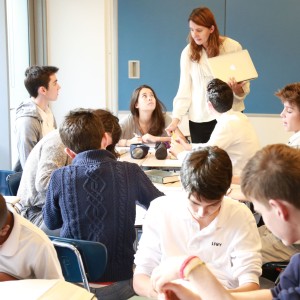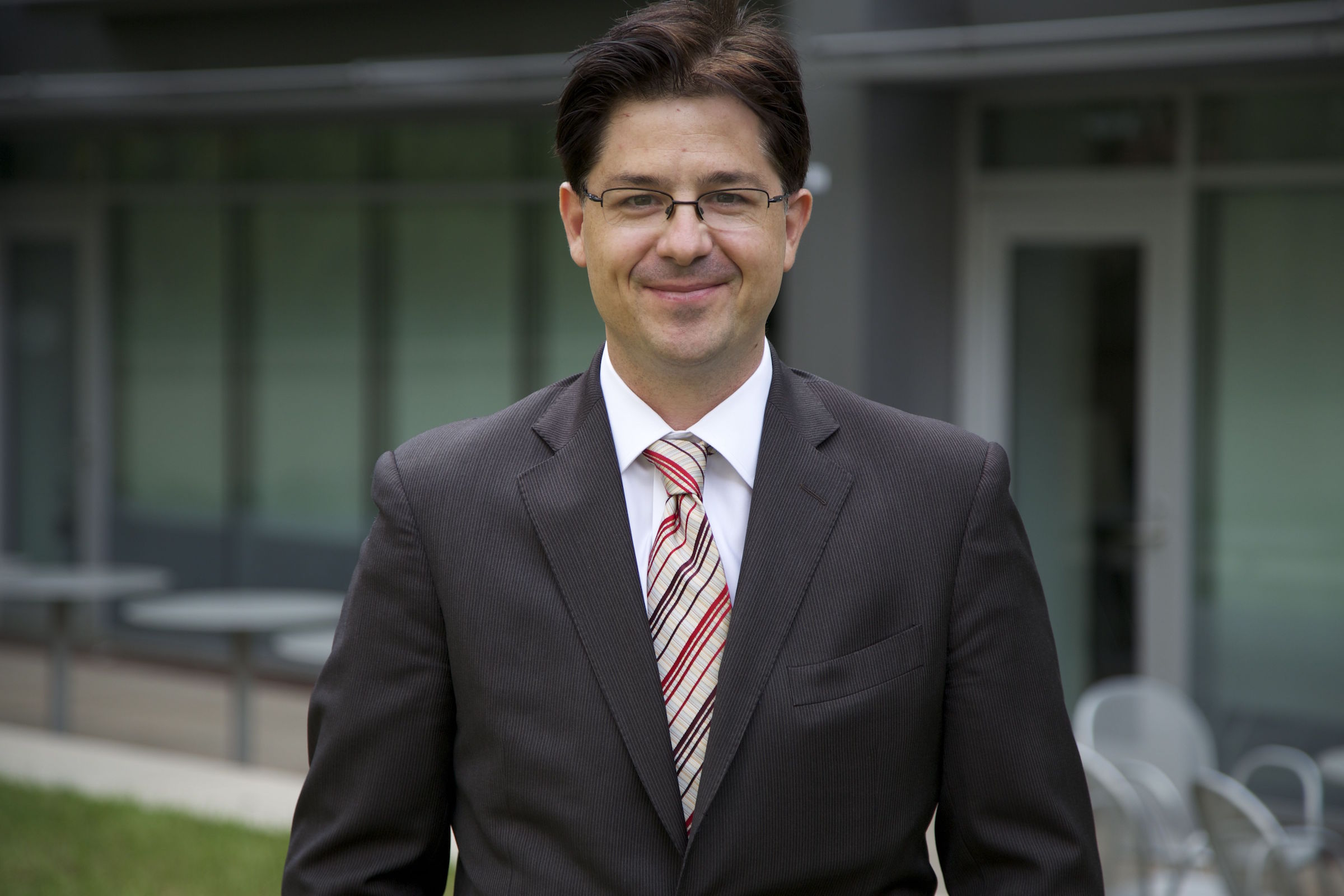In Fall 2016, France will implement a reform of its middle school curriculum. The Lycée Français de New York, as a French accredited institution, will integrate these changes, which will affect our academic programs and teaching practices. Nicolas L’Hotellier, Director of the Secondary School and Assistant Head of School, explains the new policies and how the school has already been putting many of them into place.
What does the middle school reform consist of?
There are three major elements to the French reform: the promotion of Project-Based Learning with the creation of practical interdisciplinary lessons, (an EPI or parcours), as well as extended personalized lessons in certain subjects (French, math, English); the introduction of physics in sixth grade (instead of seventh grade) and of a second foreign language (LV2) in seventh grade (instead of eighth grade); and, finally, the continued teaching of Latin as an elective, but in a reduced class period which can be completed through a parcours. The video below (in French) explains what’s changing in the French schools due to the reform.
This reform has not been without controversy in France. Are we ready to implement it here?
The reform provoked controversy In France, largely because it aims to remedy a school system that, in France, does not provide an equal level of education to all. However, our feeling is that many of the components of the reform are heading in the right direction, and the Lycee is already well on its way to implementing them.
In many ways, the Lycée already goes beyond the French government’s recommendation.
For example, with regards to personalized support for lessons, the school has, over the past few years, widely expanded its offerings most notably by establishing dialogue hours with teachers (which will increase under our new Secondary schedule), an advisory program (with the number students per advisory group reduced from 12 to 8), and beginning in Fall 2016, the creation of special remediation classes in math and French for students in sixth grade to ninth grade.
What is the place of world language teaching in the reform?
In many ways, the Lycee already goes beyond the French government’s recommendation. In essence, the reform requires the teaching of a first foreign language beginning in first grade and a second foreign language starting in seventh grade. At the LFNY, in addition to French and English, which our students learn starting in Preschool, they can choose between four second foreign languages as early as sixth grade, and Mandarin, which is taught to all students beginning in third grade.
A Latin class with teacher Céline Ribrault in middle school. Latin will continue to be offered as an elective starting in seventh grade, but it will be offered for fewer hours under the reform.
In terms of ancient languages, Latin will continue to be offered as an elective starting in seventh grade, but it will be offered for fewer hours under the reform. Ancient Greek will continue to be offered beginning in ninth grade for two periods of each seven-day cycle.
What are “parcours”, and how will they change the structure of middle-school classes?
Parcours offer a practical, interdisciplinary approach to teaching and learning (or enseignements pratiques interdisciplinaires “EPI” in French) by introducing learning through projects, or in other words, Project-Based Learning.
The new seven-day cycle of the Secondary school schedule offers longer class periods and allows teachers to alternate between full class time and small group work.
We are excited about this aspect of the reform, because it is considered a best-teaching practice, and it is in line with an approach we have been developing for some time. We are convinced that this format is a terrific way to engage our students in subject matter in new, more hands-on ways. The school has already developed professional training for our faculty in this approach, and we will continue to do so. At the same time, the new seven-day cycle of the Secondary school schedule offers longer class periods and allows teachers to alternate between full class time and small group work.
The parcours are offered to middle-school students every semester, and they end in a project or a student production across many disciplines. Students will have two distinct parcours per year.
What are the themes of these parcours?
In combining the principal directions of our strategic plan (STEAM, cultural and artistic exploration, bilingualism and pluriculturalism) and themes recommended in the reform, each student will do two projects a year based on different themes.
For example, a parcours on urban planning would combine the teaching of geographical and mathematical skills. In the second part of the year, a parcours might introduce knowledge of Ancient Greek civilization and the way in which the Greeks perceived the universe. In this case, the learning history and science will be fostered.
Translated from the french by Katherine Tucker.
Learn more:
“FAQs about the new organization of middle school” on the French website Eduscol.
The new seven-day cycle of the Secondary school schedule will be the topic of M. L’Hotellier’s next blog post in early May.
About the Author :
Originally from Alsace, Nicolas L’Hotellier has been the Assistant Head of School at the Lycée since 2009. After obtaining a master’s degree in mathematics and a teaching diploma, he taught for five years in France and then served as Assistant Principal in a collège and a lycée. In 2008, he obtained a master’s in management specializing in the administration of public educational organizations. He likes to foster students’ curiosity and encourages respect for others in all students. Nicolas is married and the father of two boys.



